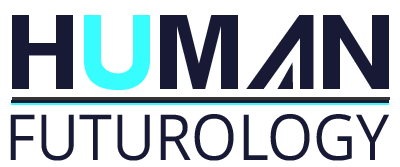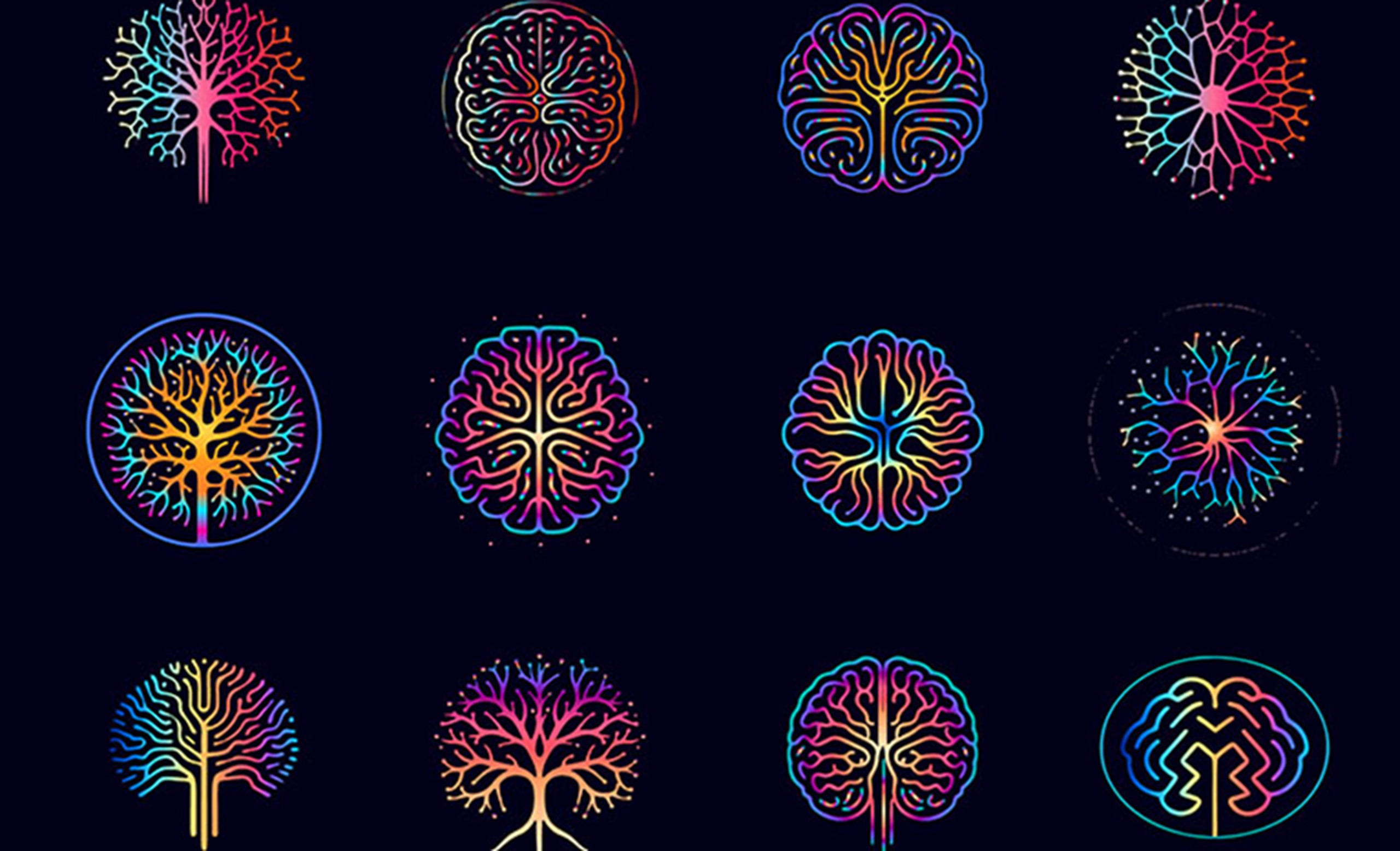
PhD Research
Human Futurology: An enquiry into Intelligent Mathematical Blueprints (IMBs) as a coaching tool in the entrepreneurial journey.
Abstract
The legitimacy and scientific objectivity of the numerology and astrology industry are globally debated topics. While critics often dismiss these practices as anecdotal and purely for entertainment, new data collection methods may enhance industry receptiveness to approaches like Intelligent Mathematical Blueprints. The Intelligent Mathematical Blueprint (IMB) is a predictive coaching tool that uses mathematical patterns and personal data to provide bespoke personal and professional development insights. By offering a structured, data-driven perspective, IMBs could foster industry development from a marginalised viewpoint to one that resonates with broader scientific and public acceptance.
Galileo Galilei stated, “Mathematics is the alphabet with which God has written the universe” (Van Hensbergen, 2001), encapsulating the profound role of mathematics in understanding life. This sentiment resonates strongly today, as mathematics forms the backbone of modern life. My fascination with numbers and their patterns has inspired me to explore their potential insights into life’s seasonality, risks, and opportunities. Although ancient traditions have long valued the role of numbers in understanding life’s design (Avery, 1974; Jordan, 1979; Phillips, 1992), contemporary criticisms remain pervasive. Practices like numerology and astrology are often dismissed as lacking empirical rigour, described by Bawden (2016) as an “enthusiasm for simple numerical formulae, usually involving integers, capturing some significant aspect of reality.”
Criticism notwithstanding, this research takes an unconventional approach to bridge ancient numerical insights (Johari, 1990; Jordan, 1987; Verma, 2013) with contemporary epistemological frameworks. Cox (2005) emphasises the importance of an epistemological foundation for transforming beliefs into irrefutable facts. This study seeks to address these criticisms and contribute to new knowledge by employing new methodologies and exploring uncharted territory.
New data gathering could enhance receptiveness to tools like IMBs, shifting the numerology and astrology industries from a minority to a majority viewpoint. Piloting tools before undertaking PhD research is well-supported academically, as it allows for testing various aspects of the planned methods in preparation for a more extensive, more rigorous investigation (Arain et al., 2010)
As a clinically diagnosed autistic entrepreneur and certified master coach, I have sought a coaching tool that uniquely decodes individual architecture for bespoke, systemic interventions. Unable to find an existing solution, I created the IMB, a mathematical framework blending Pythagorean Gematria and Kabbalistic Wisdom, in 2017. I have been refining it ever since through an ongoing test-and-learn approach. With client consent, the IMB was piloted in my business with more than 50 entrepreneurs. Early application revealed legitimate merit, demonstrating that unique numerical patterns and repeating sequences could reflect life-shaping events, potentially aligning personal development with individual numerical architecture.
IMBs suggest that individuals possess distinct numerical frameworks, much like fingerprints. Decoding these could illuminate personal histories and inform innovative future planning. This work aims to test the validity of “Human Futurist Intelligence,” a concept that could pragmatically disrupt and redefine the global personal development market, valued at $43.77 billion in 2022 (Grand View Research, 2023), and the astrology/numerology market, conservatively projected to reach $22.8 billion by 2032 (Allied Market Research, 2021), offering a significant contribution to new knowledge.
Research Aim:
This PhD seeks to explore whether Intelligent Mathematical Blueprints (IMBs), rooted in “the influence of Pythagorean numeric wisdom” (Patras, 2020), can consistently identify key historical life-shaping events with greater than random accuracy. The research aims to transition IMBs from a conceptual coaching framework to an evidence-driven, scientifically validated tool that helps entrepreneurs leverage their historical experiential patterns to inform future thinking, planning, and execution.
Additionally, the study investigates whether IMBs could improve entrepreneurial resourcefulness on intrapersonal and interpersonal levels. By fostering self-compassion and mindfulness, IMBs could help entrepreneurs develop resilience and adaptability through a structured understanding of internal strengths and external opportunities. Thus, they have the potential to support entrepreneurs in navigating challenges with more significant emotional balance and clarity (Grant, 2016; de Haan et al., 2011).
The research also examines the ability of IMB futurist insights to address entrepreneurial fear of failure by reducing future uncertainty and transforming negative paradigms into actionable strategies that empower entrepreneurs to pursue opportunities confidently. Finally, the study evaluates whether IMBs could effectively position themselves as a niche coaching tool for receptive entrepreneurs, offering targeted interventions that align personal growth with professional success (Anis et al., 2018).
The aspirational goal of this PhD is to refine and expand the IMB framework into a scientifically validated model that helps, heals, and transforms (HHT) lives. Grounded in evidence-based practice and client-centred feedback, the research aims to bridge the gap between personal development and entrepreneurial strategy, contributing to the coaching and personal development industries while guiding strategic decisions beyond the scope of this study.
PhD Research Objectives
Instead of research objectives, I prefer research questions, which are:
- Do IMB insights identify key historic life-shaping events with a higher than random accuracy?
- Do IMB insights improve entrepreneurial resourcefulness on an intrapersonal and interpersonal level?
- Do IMB insights improve entrepreneurial self-compassion and mindfulness?
- Do IMB insights address entrepreneurial fear of failure by reducing future uncertainty?
- Can the IMB be positioned as a niche coaching insights tool for receptive individuals/entrepreneurs’ personal and professional development?
Literature Review
Objective 1: Identify Historic Life-Shaping Events
Entrepreneurs rely heavily on foresight to navigate uncertainty, identify opportunities, and make decisions (McGrath and MacMillan, 2000; Kuratko et al., 2020). Hunt et al., (2022) highlight that entrepreneurs speculate on the future structure of markets based on anticipatory reasoning. While some argue the future is too uncertain to predict (York & Venkataraman, 2010), future-oriented sensemaking remains vital in entrepreneurial contexts (Ganzin et al., 2020). The IMBs’ potential ability to integrate historical data into future-oriented narratives aligns with theories emphasising the importance of foresight in strategic planning (Kirzner, 1979; Fuller and Warren, 2006). Moreover, understanding the interplay between historical events and individual patterns could provide critical insights into future life-shaping events.
- Null Hypothesis (Ho): IMBs do not accurately identify key historic life-shaping events
- Alternative Hypothesis (H1): IMBs accurately identify key historic life-shaping events.
Objective 2: Improving Entrepreneurial Resourcefulness
The middle-range theory of resourcefulness emphasises two dimensions: personal (self-help) and social (help-seeking) (Zauszniewski, 2006). Entrepreneurs require both dimensions to overcome challenges, adapt, and thrive in unpredictable environments. Entrepreneurial alertness, creativity, and prior experience (Kirzner, 1979; Ardichvili and Cardozo, 2000; Shane, 2000) underpin resourcefulness, while social networks and support systems provide the external scaffolding for success (Baron, 2006; Singh, 2000).
Some scholars argue that the future is inherently uncertain and unknowable, making it impossible for entrepreneurs to predict future opportunities (York & Venkataraman, 2010). The effectuation approach proposed by Sarasvathy (2001) suggests that the future is “contingent on actions by wilful agents, largely non-existent and a residual of actions taken” (Read & Sarasvathy, 2005). In this context, IMBs could enhance entrepreneurial resourcefulness by providing individuals with a structured understanding of their internal strengths and external opportunities, enabling them to respond flexibly to contingencies and thrive despite the unpredictability of the future. This dual focus on intrapersonal and interpersonal resourcefulness aligns with the need for entrepreneurs to balance self-driven efforts with the ability to seek and utilise external support effectively.
- Null Hypothesis (Ho): IMB insights do not improve intrapersonal and interpersonal resourcefulness in entrepreneurs.
- Alternative Hypothesis (H1): IMB insights improve intrapersonal and interpersonal resourcefulness in entrepreneurs.
Objective 3: Enhancing Self-Compassion and Mindfulness
Mindfulness and self-compassion are critical for entrepreneurial resilience and well-being. Mindfulness fosters present-moment awareness, enabling individuals to make better judgments and adapt effectively (Gärtner, 2013; Hofmann et al., 2010). Self-compassion, characterised by self-kindness and acceptance, helps individuals navigate setbacks and maintain psychological balance (Neff, 2003; Taylor and Bishop, 2019). Research has demonstrated that mindfulness and self-compassion positively influence performance, creativity, and stress tolerance (Roche et al., 2014; King and Badham, 2020). By aligning individuals with their unique patterns and opportunities, IMBs may help mindfulness and self-compassion, providing critical support for entrepreneurial success.
- Null Hypothesis (Ho): IMB insights do not improve entrepreneurial self-compassion and mindfulness.
- Alternative Hypothesis (H1): IMB insights improve entrepreneurial self-compassion and mindfulness.
Objective 4: Addressing Fear of Failure
Fear of failure is a pervasive challenge for entrepreneurs, influencing decision-making and often inhibiting action (Cacciotti and Hayton, 2015; Mitchell and Shepherd, 2010). This fear can persist throughout the venture lifecycle and is context-dependent (Cacciotti et al., 2016). While traditional approaches view fear of failure as a barrier, others suggest it can motivate action in specific scenarios (Games et al., 2020). Research indicates that enhancing mindfulness and self-compassion can benefit entrepreneurs (Engel et al., 2019; Kelly and Dorian, 2017). IMBs, by reducing future uncertainty, could help entrepreneurs better navigate the fear of failure. Providing structured, data-driven insights may address this fear, aligning with theories emphasising clarity and foresight in entrepreneurial resilience (Baron et al., 2013; Sarasvathy, 2001). Purely qualitative; therefore, no null hypothesis (Ho) generated.
Objective 5: Acceptance/Rejection/Application of IMBs
Entrepreneurial education shapes entrepreneurial mindset, fostering innovation, proactivity, and risk-taking (Jones et al., 2017; Martins et al., 2022). These characteristics are critical for developing entrepreneurial intentions, with a positive correlation between entrepreneurial attitudes and intentions (Shah & Soomro, 2017). These entrepreneurial intentions act as a catalyst, transforming aspirations into actionable outcomes (Nabi et al., 2010).
That said, the impact of education on fostering entrepreneurial skills and mindset remains complex and contested (Adeel et al., 2023; Pittaway and Cope, 2007) with some studies reporting a positive correlation (Dehghanpour Farashah, 2013; Karimi et al., 2016; Solesvik et al., 2014; Tessema Gerba, 2012) whilst others suggest a negative impact (Oosterbeek et al., 2010; Souitaris et al., 2007; Von Graevenitz et al., 2010). This inconsistency may arise from intervening variables that shape the connection between education and outcomes (Otache et al., 2022). To address these complexities, universities increasingly embed entrepreneurial skills and mindset development into curricula and institutional frameworks (Overwien et al., 2024). This shift reflects the growing recognition of the entrepreneurial mindset as an essential component of modern education.
Entrepreneurs’ willingness to engage with novel tools reflects their openness to experimentation and adaptability (McGrath & MacMillan, 2000). As entrepreneurial behaviour often hinges on flexibility and learning (Politis, 2005; Ganzin et al., 2020), analysing the level to which entrepreneurs accept or reject IMB self-awareness education could provide critical insight into how this tool could be refined to better align with diverse entrepreneurial contexts and development goals.
- Null Hypothesis (Ho): IMB coaching insights do not improve entrepreneurial personal and professional development.
- Alternative Hypothesis (H1): IMB coaching insights improve entrepreneurial personal and professional development.
An outline of the methodology and approach to be used:
Researchers often confuse methodologies with methods. Harvey et al. (2023) explain that methodology provides the theoretical foundation for research, while methods are the techniques used for data collection. Selecting methodologies and methods is often complex (Dillon and Wals, 2006; Håkansson, 2013; Franco, 2015). McLachlan and Garcia (2015) stress the need for doctoral students to adopt a reflexive approach to navigating the wide range of philosophical positions.
This study employs a mixed-methods approach. One part of this PhD is quantitative in that it seeks to investigate the relationship between known life events and the numbers, sequences, and patterns that themed these, making quantitative research necessary to process the numerical data, identify trends, and understand the relationships (Sheskin, 2011; Watson, 2015; Kotronoulas et al., 2023).
The other part of this PhD is qualitative. It seeks to develop a deeper understanding of the phenomenological interplay between lived experiences and the numbers, sequences and patterns that influenced this. Qualitative research emphasises context, experience, meaning, and subjectivity, complementing rather than contradicting the strengths of quantitative research (Lim, 2024). Kvale (1996) highlights the importance of qualitative interviews in exploring participants’ lived experiences and perspectives, while techniques such as thematic analysis, Gioia methodology (Gioia et al., 2013), and Huberman’s approach (Miles et al., 2014) provide robust frameworks for data reduction, display, and analysis. Sampling in qualitative studies is typically non-probabilistic, using methods such as snowball sampling, purposive selection (e.g., participants with developed IMBs), or convenience sampling based on availability.
Objective 1: Identify Historic Life-Shaping Events
This aligns with literature emphasising the entrepreneurial reliance on foresight and predictive reasoning (McGrath & MacMillan, 2000; Ganzin et al., 2020). Entrepreneurs will be randomly selected through UK Chamber of Commerce connections. Bespoke IMBs will be created for each participant, followed by Likert-scale questionnaires and qualitative interviews assessing the perceived accuracy of IMBs in reflecting key historical life events. Statistical analysis will involve testing data for normality by applying parametric tests (T-tests, Pearson’s Correlation) or non-parametric alternatives (Wilcoxon Signed Rank). The sample size will be determined using G*Power based on 80% power and an alpha of 0,05.
Objective 2: Improving Entrepreneurial Resourcefulness
Resourcefulness, crucial in overcoming challenges, will be objectively evaluated to test the IMBs’ role in fostering self-help and help-seeking behaviours, as highlighted by Zauszniewski (2006) and Ardichvili and Cardozo (2000). Zauszniewski et al.,(2006) developed the 28-item Resourcefulness Scale (RS), which reflects personal and social resourcefulness. Where necessary, this scale will be adapted to meet this research objective. I will use the RS to measure resourcefulness before, immediately after, and 6 and 12 months post the IMB coaching intervention. Changes will be evaluated using Repeated Measures ANOVA (if the data is standard) or the Friedman Test (if the data is not normally distributed). Sample size will be determined using G*Power (80%, alpha of 0,05).
Objective 3: Enhancing Self-Compassion and Mindfulness
The Self Compassion Scale (Neff, 2003) is a 26-item questionnaire using a 5-point scale ranging from rarely (1) to almost always (5). The SCS produces a total self-compassion score and six subscales (self-kindness, common humanity, mindfulness, self-judgment, isolation, and overidentification). The SCS is a reliable and valid measure of self-compassion, showing associations with theoretically linked constructs, including anxiety and depression (Galvin et al., 2021; Galvin and Richards, 2023). I will use the SCS to measure entrepreneurial self-compassion before, immediately after, and 6 and 12 months after the IMB coaching intervention. Sample size will be determined using G*Power (80%, alpha of 0,05).
Objective 4: Addressing Fear of Failure
Fear of failure is situational and can be both a barrier and a motivator (Cacciotti et al., 2016). This research objective will examine whether IMB insights help reduce future uncertainty, which could offer the much-needed clarity and confidence that entrepreneurs seek (Baron et al., 2013; Sarasvathy, 2001). The Fear of Failure (FoF) Scale is an 18-item inventory of questions designed to capture entrepreneurial FoF (Cacciotti et al., 2020; Engel et al., 2019; Games et al., 2020). Methodologically, this novel measurement captures six conceptual dimensions and possibilities and combines them into a new construct (Cacciotti et al., 2020). I will use the FoF Scale assessments to measure FoF before, immediately after, and 6 and 12 months after the IMB intervention. Given that a wide range of perspectives is desired, exponential non-discriminative snowball sampling will be used.
Objective 5: Acceptance/Rejection/Application of IMBs
Entrepreneurial openness to innovation and adaptability (McGrath & MacMillan, 2000) are central to understanding the tool’s perceived value. This acceptance/rejection/application research objective is directly linked with an entrepreneurial mindset (EM). Davis et al., (2015) developed an Entrepreneurial Mindset Profile (EMP) comprising 17 dimensions (Personality traits [8]: self-confidence, optimism, relishing experimentation, action orientation, nonconformity, passion, need to achieve, intrapersonal awareness; Skills [9]: persistence, preference for limited structure, future focus, ideational fluency, flexibility, originality, elaboration, idea generation, risk acceptance). Using a Likert Scale 5-point scale running from Strongly Disagree to Agree Strongly, I will investigate the before and after impact of IMB coaching insights against a detailed questionnaire that thoroughly assesses the above 17 EMP factors. Sample size will be determined using G*Power (80%, alpha of 0,05).
Ethical, health and safety issues:
Ethical approval from Bournemouth University’s Ethics Committee will be obtained before commencing the study, as the use of personal data may categorise the research as high-risk. The ethics review will adhere to BU’s research code of ethics, ensuring compliance with key principles such as informed consent, confidentiality, the right to withdraw, and minimising harm. Data will be securely stored in the BU repository in compliance with data protection laws, ensuring participant anonymity throughout the study. To ensure all procedures and protocols are correctly followed and the necessary documentation (e.g., PIF, PAF) is completed for the February 2025 submission deadline, I have consulted with Prof. Sam Goodman and Sarah Bell from BU Research, Development and Support
References
Adeel, A., Khan, M.N.A., Saeed, A. and Baig, M.Z. (2023) ‘Impact of entrepreneurial education on entrepreneurial intentions: A systematic review and research agenda’, Journal of Entrepreneurship Education, 26(1), pp. 45–62.
Allied Market Research (2021) ‘Astrology market size to reach $22.8 billion by 2032’, Allied Market Research. Available at: https://www.alliedmarketresearch.com (Accessed: 6 October 2024).
Anis, B.S., Lakhal, L., Rahmoun, M. and Carrera-Jimenez, J. (2018) ‘The role of entrepreneurial coaching in the restarting process after business failure’, Journal of Enterprising Culture, 26(4), pp. 379–399. doi:10.1142/S0218495818500140.
Arain, M., Campbell, M.J., Cooper, C.L. and Lancaster, G.A. (2010) ‘What is a pilot or feasibility study? A review of current practice and editorial policy’, BMC Medical Research Methodology, 10(1), p. 67.
Ardichvili, A. and Cardozo, R. (2000) ‘A model of the entrepreneurial opportunity recognition process’, Journal of Enterprising Culture, 8(2), pp. 103–119. doi:10.1142/S0218495800000073.
Avery, K.Q. (1974) Numerology and the Divine Triangle. New York: Schiffer Publishing.
Baron, R.A. (2006) ‘Opportunity recognition as pattern recognition: How entrepreneurs “connect the dots” to identify new business opportunities’, Academy of Management Perspectives, 20(1), pp. 104–119.
Baron, R.A., Franklin, R.J. and Hmieleski, K.M. (2013) ‘Why entrepreneurs often experience low, not high, levels of stress: The joint effects of selection and psychological capital’, Journal of Management, 39(3), pp. 742–768. doi:10.1177/0149206311413187.
Bawden, D. (2016) ‘Numerology: An enthusiasm for simple numerical formulae’, Journal of Documentation, 72(4), pp. 637–649.
Cacciotti, G., & Hayton, J. C. (2015). Fear and entrepreneurship: A review and research agenda. International Journal of Management Reviews, 17(2), 165–190. https://doi.org/10.1111/ijmr.12052
Cacciotti, G., Hayton, J.C., Mitchell, J.R. and Giazitzoglu, A. (2016) ‘A reconceptualisation of fear of failure in entrepreneurship’, Journal of Business Venturing, 31(3), pp. 302–325.
Cacciotti, G., Engel, Y., Nummela, N. and Games, D. (2020) ‘The Entrepreneurial Fear of Failure Scale: Conceptualization, measurement, and validation’, Entrepreneurship Theory and Practice, 44(5), pp. 894–924.
Cox, J. (2005) Epistemology: The Theory of Knowledge. London: Routledge.
Davis, M.H., Hall, J.A. and Mayer, P.S. (2015) The Entrepreneurial Mindset Profile (EMP): Measuring Key Cognitive and Behavioral Characteristics of Entrepreneurs. Sarasota, FL: The Entrepreneurial Mindset Profile Press.
de Haan, E., Culpin, V. and Curd, J. (2011) ‘Executive coaching in practice: what determines helpfulness for clients of coaching?’, Personnel Review, 40(1), pp. 24–44. doi:10.1108/00483481111095500.
Dehghanpour Farashah, A. (2013) ‘The process of impact of entrepreneurship education and training on entrepreneurship perception and intention’, Education + Training, 55(8/9), pp. 868–885.
Dillon, J. and Wals, A.E.J. (2006) ‘On the danger of blurring methods, methodologies and ideologies in environmental education research’, Environmental Education Research, 12(3–4), pp. 549–558. doi:10.1080/13504620600799304.
Engel, Y., Noordijk, S., Spoelder, A. and van Gelderen, M. (2019) ‘Self-compassion when coping with venture obstacles: Loving-Kindness Meditation and entrepreneurial fear of failure’, Entrepreneurship Theory and Practice. doi:10.1177/1042258719890991.
Franco, M. (2015) ‘The influence of methods and methodologies on research outcomes: A practical perspective’, Journal of Research Methodologies, 8(3), pp. 45–62. doi:10.1080/12345678.2015.987654.
Fuller, T. and Warren, L. (2006) ‘Entrepreneurship as foresight: A complex social network perspective on organisational foresight’, Futures, 38(7), pp. 956–971. doi:10.1016/j.futures.2005.12.008.
Galvin, J., Aguolu, P., Amos, A., Bayne, F., Hamza, F. and Alcock, L. (2023) ‘Self-compassion, camouflaging, and mental health in autistic adults’, Autism in Adulthood. doi:10.1089/aut.2023.0110.
Galvin, J. and Richards, G. (2023) ‘The indirect effect of self-compassion in the association between autistic traits and anxiety/depression: A cross-sectional study in autistic and non-autistic adults’, Autism, 27(5), pp. 1256–1270. doi:10.1177/13623613221132109.
Games, D., Cacciotti, G., Brieger, S.A. and Kraus, S. (2020) ‘Fear of failure and entrepreneurship: A review and future research agenda’, International Journal of Management Reviews, 22(3), pp. 317–343. doi:10.1111/ijmr.12231.
Ganzin, M., Islam, G. and Suddaby, R. (2020) ‘Theorizing entrepreneurial imagination: An integrative approach’, Academy of Management Review, 45(4), pp. 806–829.
Gärtner, W.B. (2013) ‘Mindfulness in entrepreneurship: The role of awareness and attention in entrepreneurial processes’, Journal of Business Venturing Insights, 1(1–2), pp. 63–69. doi:10.1016/j.jbvi.2013.10.001.
Gioia, D.A., Corley, K.G. and Hamilton, A.L. (2013) ‘Seeking Qualitative Rigor in Inductive Research: Notes on the Gioia Methodology’, Organizational Research Methods, 16(1), pp. 15–31. doi: 10.1177/1094428112452151.
Grand View Research (2023) Personal Development Market Size, Share & Trends Analysis Report by Instrument (Books, e-Platforms), by Focus Area (Mental Health, Physical Health), by Region, and Segment Forecasts, 2023–2030. Available at: https://www.grandviewresearch.com/industry-analysis/personal-development-market (Accessed: 15 July 2024).
Grant, A.M. (2016) ‘The efficacy of executive coaching in times of organisational change’, Journal of Organizational Behavior, 37(4), pp. 599–621.
Håkansson, H. (2013) Science of the Art of Teaching: Understanding Methodology and Practice. London: Routledge.
Harvey, L., Jones, G. and Roberts, P. (2023) ‘Understanding the distinction between research methodologies and methods: A guide for postgraduate students’, International Journal of Research Methods, 15(2), pp. 101–115. doi:10.1108/IJRM-04-2023-0056.
Hofmann, S.G., Sawyer, A.T., Witt, A.A. and Oh, D. (2010) ‘The effect of mindfulness-based therapy on anxiety and depression: A meta-analytic review’, Journal of Consulting and Clinical Psychology, 78(2), pp. 169–183. doi:10.1037/a0018555.
Hunt, R.A., Lerner, D.A., Johnson, S.L., Badal, S. and Freeman, M.A. (2022) ‘Cracks in the wall: Entrepreneurial action theory and the weakening presumption of intended rationality’, Journal of Business Venturing, 37(3), p. 106190. doi:10.1016/j.jbusvent.2022.106190.
Johari, H. (1990) Numerology: With Tantra, Ayurveda, and Astrology. London: Destiny Books.
Jones, P., Maas, G., Pittaway, L. and Sepulveda, F. (2017) ‘Entrepreneurial education: Shaping entrepreneurial mindsets’, Journal of Small Business and Enterprise Development, 24(1), pp. 42–60.
Jordan, J. (1979) Numerology and Personal Development. London: HarperCollins.
Jordan, J. (1985) Your Right Action Number. Marina del Rey, CA: DeVorss & Company
Karimi, S., Biemans, H.J.A., Lans, T., Chizari, M. and Mulder, M. (2016) ‘The impact of entrepreneurship education: A study of Iranian students’ entrepreneurial intentions and opportunity identification’, Journal of Small Business Management, 54(1), pp. 187–209.
Kelly, L. and Dorian, M. (2017) ‘Doing well and good: An exploration of the role of mindfulness in the entrepreneurial opportunity recognition and evaluation process’, New England Journal of Entrepreneurship, 20(2), Article 2. doi:10.2139/ssrn.3103609.
King, E. and Badham, R. (2020) Leadership, Creativity and Innovation: Theory, Research and Practice. London: Routledge. doi:10.4324/9780429286797.
Kirzner, I.M. (1979) Perception, Opportunity, and Profit: Studies in the Theory of Entrepreneurship. Chicago: University of Chicago Press.
Kotronoulas, G., Miguel, S., Dowling, M., Fernández-Ortega, P., Colomer-Lahiguera, S., Bağçivan, G., Pape, E., Drury, A., Semple, C., Dieperink, K.B. and Papadopoulou, C. (2023) ‘An overview of the fundamentals of data management, analysis, and interpretation in quantitative research’, Seminars in Oncology Nursing, 39(2), p. 151398. doi:10.1016/j.soncn.2023.151398.
Kurakto, D.F., Fisher, G. and Audretsch, D.B. (2020) ‘The entrepreneurial mindset: A framework for integrating antecedents, outcomes, and mechanisms’, Journal of Business Venturing, 35(6), pp. 105983.
Kvale, S. (1996) ‘The 1,000-page question’, Qualitative Inquiry, 2(3), pp. 275–284. doi:10.1177/107780049600200302.
Lim, W.M. (2024) ‘What is qualitative research? An overview and guidelines’, Australasian Marketing Journal, 0(0). doi:10.1177/14413582241264619.
Martins, I., Perez, J.M. and Choo, S. (2022) ‘Entrepreneurial education and its impact on entrepreneurial intentions: A meta-analytic review’, Journal of Business Research, 139, pp. 1384–1399. doi:10.1016/j.jbusres.2021.10.011.
McLachlan, S. and Garcia, C. (2015) ‘Applying philosophy in practice: A reflexive and provocative approach for doctoral students’, Journal of Research Practice, 11(2), pp. 202–215.
McGrath, R.G. and MacMillan, I.C. (2000) The Entrepreneurial Mindset: Strategies for Continuously Creating Opportunity in an Age of Uncertainty. Boston: Harvard Business School Press.
Miles, M.B., Huberman, A.M. and Saldaña, J. (2014) Qualitative Data Analysis: A Methods Sourcebook. 3rd ed. Thousand Oaks, CA: SAGE Publications.
Mitchell, J.R. and Shepherd, D.A. (2010) ‘To thine own self be true: Images of self, images of opportunity, and entrepreneurial action’, Journal of Business Venturing, 25(1), pp. 138–154. doi:10.1016/j.jbusvent.2008.08.001.
Nabi, G., Holden, R. and Walmsley, A. (2010) ‘Entrepreneurial intentions among students: Towards a re-focused research agenda’, Journal of Small Business and Enterprise Development, 17(4), pp. 537–551. doi:10.1108/14626001011088714.
Neff, K.D. (2003) ‘The development and validation of a scale to measure self-compassion’, Self and Identity, 2(3), pp. 223–250.
Oosterbeek, H., van Praag, M. and Ijsselstein, A. (2010) ‘The impact of entrepreneurship education on entrepreneurship skills and motivation’, European Economic Review, 54(3), pp. 442–454. doi:10.1016/j.euroecorev.2009.08.002.
Otache, I., Bassey, B.E. and Chikwe, J.E. (2022) ‘Entrepreneurial education and entrepreneurial intentions: The mediating role of entrepreneurial mindset’, Education + Training, 64(3), pp. 384–402. doi:10.1108/ET-02-2021-0051.
Overwien, B., Eikelmann, S. and Kühn, L. (2024) ‘Fostering entrepreneurial mindsets in higher education: Integrating theory and practice’, Journal of Entrepreneurship Education, 33(1), pp. 45–62. doi:10.1108/JEE-03-2023-0021.
Patras, F. (2020) ‘The Lasting Influence of Pythagorism’, in The Essence of Numbers. Lecture Notes in Mathematics, vol. 2278. Springer, Cham. doi:10.1007/978-3-030-56700-2_2.
Phillips, D.A. (1992) The Complete Book of Numerology. New York: Ballantine Books.
Pittaway, L. and Cope, J. (2007) ‘Entrepreneurship education: A systematic review of the evidence’, International Small Business Journal, 25(5), pp. 479–510.
Politis, D. (2005) ‘The process of entrepreneurial learning: A conceptual framework’, Entrepreneurship Theory and Practice, 29(4), pp. 399–424.
Read, S. and Sarasvathy, S.D. (2005) ‘Knowing what to do and doing what you know: Effectuation as a form of entrepreneurial expertise’, Journal of Private Equity, 9(1), pp. 45–62.
Roche, M., Haar, J.M. and Luthans, F. (2014) ‘The role of mindfulness and psychological capital on the well-being of leaders’, Journal of Occupational Health Psychology, 19(4), pp. 476–489. doi:10.1037/a0037183.
Sarasvathy, S.D. (2001) ‘Causation and effectuation: Toward a theoretical shift from economic inevitability to entrepreneurial contingency’, Academy of Management Review, 26(2), pp. 243–263. doi:10.5465/amr.2001.4378020.
Shah, I.A. and Soomro, B.A. (2017) ‘Entrepreneurial intentions: The role of individualism and collectivism in perspective’, International Journal of Entrepreneurship and Small Business, 30(1), pp. 121–135.
Shane, S. (2000) ‘Prior knowledge and the discovery of entrepreneurial opportunities’, Organization Science, 11(4), pp. 448–469. doi:10.1287/orsc.11.4.448.14602.
Singh, R.P. (2000) ‘Entrepreneurial opportunity recognition through social networks’, New England Journal of Entrepreneurship, 3(3), pp. 39–43. doi:10.1108/NEJE-03-2000-B004.
Sheskin, D.J. (2011) Handbook of Parametric and Nonparametric Statistical Procedures. 5th ed. Boca Raton, FL: Chapman & Hall/CRC.
Solesvik, M.Z., Westhead, P., Matlay, H. and Parsyak, V.N. (2014) ‘Entrepreneurial assets and mindsets: Benefit from university entrepreneurship education investment’, Education + Training, 56(8/9), pp. 795–811. doi:10.1108/ET-06-2014-0065.
Souitaris, V., Zerbinati, S. and Al-Laham, A. (2007) ‘Do entrepreneurship programmes raise entrepreneurial intention of science and engineering students? The effect of learning, inspiration and resources’, Journal of Business Venturing, 22(4), pp. 566–591. doi:10.1016/j.jbusvent.2006.05.002.
Taylor, S. and Bishop, S.R. (2019) ‘Mindfulness-based stress reduction and mindfulness-based cognitive therapy: Mechanisms of action’, Frontiers in Psychology, 10, p. 2754. doi:10.3389/fpsyg.2019.02754.
Tessema Gerba, D. (2012) ‘Impact of entrepreneurship education on entrepreneurial intentions of business and engineering students in Ethiopia’, African Journal of Economic and Management Studies, 3(2), pp. 258–277.
Van Hensbergen, G. (2001) The Sagrada Familia: Gaudi’s Heaven on Earth. London: HarperCollins.
Verma, V. (2013) Numerology based on Vedic Tradition: Learning to make a Karmic Horoscope and benefit from it to do the appropriate Present Karma for inner Peace and Happiness. India: Gayatri Books International.
Von Graevenitz, G., Harhoff, D. and Weber, R. (2010) ‘The effects of entrepreneurship education’, Journal of Economic Behavior & Organization, 76(1), pp. 90–112. doi:10.1016/j.jebo.2010.02.015.
Watson, R. (2015) ‘Quantitative research’, Nursing Standard (Royal College of Nursing (Great Britain): 1987), 29(31), pp. 44–48. doi:10.7748/ns.29.31.44.e8681.
York, J.G. and Venkataraman, S. (2010) ‘The entrepreneur-environment nexus: Uncertainty, innovation, and allocation’, Journal of Business Venturing, 25(5), pp. 449–463.
Zauszniewski, J.A. (2006) ‘Resourcefulness: A concept analysis’, Nursing Forum, 41(3), pp. 116–125.
Zauszniewski, J.A., Lai, C.Y. and Tithiphontumrong, S. (2006) ‘Development and testing of the Resourcefulness Scale for older adults’, Journal of Nursing Measurement, 14(1), pp. 57–68. doi:10.1891/jnum.14.1.57.
CONTACT US





